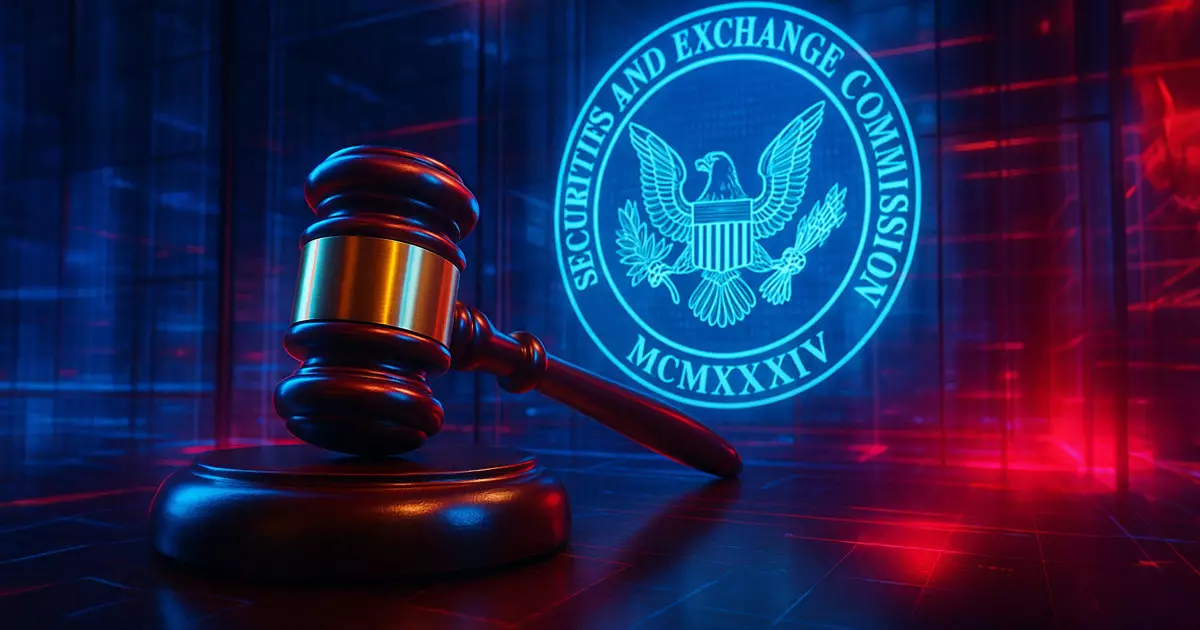The narrative surrounding the crypto industry has remained mired in a belief that as leadership shifts within major regulatory bodies, such as the Securities and Exchange Commission (SEC), the tide of enforcement would recede. However, the reality is that such transitions often stoke a flame that is more insatiable than ever. The departure of Gary Gensler from the SEC may have been anticipated as a potential turning point for cryptocurrency regulation in the United States, but it merely signaled a transition of tactics rather than an end to the aggressive oversight we have seen in recent years. Under the veil of a new administration, the enforcement of regulations has seamlessly moved to state levels, leading to a convoluted maze for firms trying to navigate the ever-changing landscape.
State-Led Legal Battles: A New Frontier for Crypto Companies
The focus has shifted, much like a game of whack-a-mole, where as one regulatory threat seems to dissipate at the federal level, another arises within state jurisdictions. Justin Slaughter, the vice president of regulatory affairs at Paradigm, identifies how lawsuits against crypto exchanges, such as Coinbase, are being fed by state Attorneys General (AGs) who are driven to fill the gap left by federal vacuums. With legal pursuits now largely state-centric, these uncoordinated attacks pose an imminent risk for the crypto industry. The irony here is stark; these AGs lack the federal resources to build complex cases akin to those established by the SEC, yet their unpredictability renders them a formidable adversary.
The recent case from Oregon exemplifies this trend as the AG attempts to replicate SEC language and arguments while simultaneously introducing changes designed to emphasize state law. By narrowing the focus of their complaints and diverging from the federal government’s precise terminology, state AGs are crafting a new regulatory environment tailored to their jurisdiction’s legal frameworks. However, this tailored approach does not benefit the crypto companies that now must contend with varied interpretations and definitions across multiple states. Each state’s active participation complicates compliance efforts, leaving many firms in a state of uncertainty.
The Chaotic Consequences of Fragmented Regulation
As more states embrace their regulatory autonomy, the specter of a fragmented legal landscape for crypto firms looms ever larger. Without federal legislation serving as a cohesive framework, businesses are left to deal with courts that are not only beholden to different standards but also influenced by varying public opinions and political agendas. In such a climate of unpredictability, the potential for contradictory legal precedents increases, rendering businesses vulnerable to capricious outcomes.
This is not merely a bureaucratic quagmire; it poses existential threats to the very innovation that crypto purports to foster. Companies now find themselves entangled in a multitude of legal battles while also contending with the inefficiencies of state-level litigation—battles that are not scalable and offer little uniformity in their resolutions. Indeed, the longer Congress remains idle on establishing a clear and coherent regulatory framework, the more likely it is that states will seize the opportunity to shape the industry’s future as they see fit.
The Call for Action: Cohesive Regulation as the Solution
If state AGs continue to accrue power in regulating the crypto landscape, the call for cohesive federal legislation becomes more urgent. The lack of a unified approach not only stifles innovation; it also creates an environment ripe for confusion and fear. Will companies be at the mercy of a patchwork quilt of state laws that differ dramatically from one region to another, or can we anticipate a federal solution that lays down clear and fair rules?
In this climate of uncertainty, the fact remains that crypto is here to stay. Yet, its growth is conditional upon stability and clarity regarding regulations. Policymakers must recognize that flexibility will be crucial, as rigid regulations may suffocate the very industry they aim to govern. Until a comprehensive framework materializes, states will continue to vie for control over the crypto narrative, wielding their legal authority to navigate the tumultuous waters of competing interests.
The world of cryptocurrency is laden with potential; however, it is equally fraught with challenges sparked by a chaotic regulatory landscape. The clock is ticking for Congress to embrace a proactive regulatory approach that preserves innovation while ensuring accountability. The potential for greatness exists, but it hinges on the ability to harmonize federal and state laws, thereby weaving a stable fabric for an industry rife with promise.


















Leave a Reply